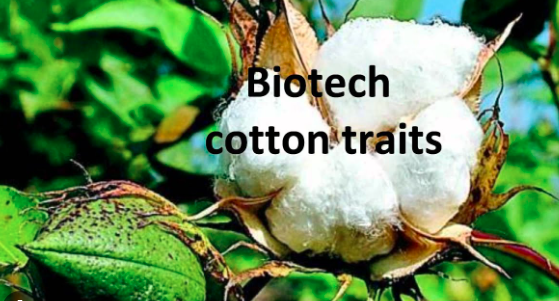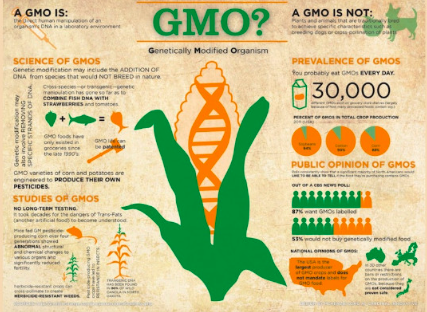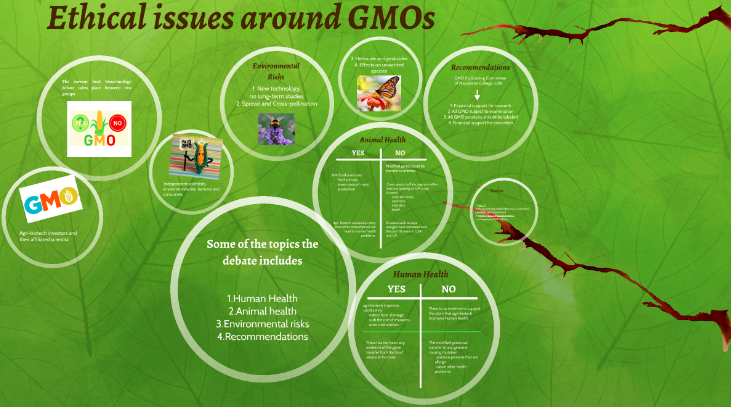For this assignment, you will research the approved social issue blog chosen in Module 1 (Genetically Modified Foods), now looking at it at the national level. Based on the evidence taken from the research, you must create the layout for a blog in a Word document (you will not actually be posting the blog on the internet). A blog is an informal platform used to present an argument that builds on your own perspective. After your blog has been submitted using the appropriate assignment link, post your document (blog) to the discussion thread created by your instructor.
In the mid-1990s, India stood at the crossroads of agricultural innovation by introducing genetically modified crops, notably Bt cotton. Initial optimism surrounding Bt cotton, designed to resist pests through genetic engineering, gradually gave way to a stark reality of unexpected crop failures and the emergence of secondary pests.

Social Issue Blog
This narrative poignantly illustrates the intricate and unpredictable nature of genetically modified foods (GMFs). Consider how this field of promise transforms into arenas of uncertainty, where crops, meant to enhance agricultural productivity, pose unanticipated challenges. How can innovations, intended to revolutionize agriculture and mitigate global food demands, inadvertently disrupt the delicate balance of nature? These concerns constitute the crux of a multifaceted issue that demands exploration across societal, economic, political, health, environmental, and ethical dimensions.
Transitioning from this scenario, let’s delve into the specific purpose of our study. Our study focuses on the discourse surrounding GMFs across diverse academic fields, each providing a unique perspective on the multifaceted problem. As we ponder how society embraces emerging technologies, sociological inquiries come to the forefront. Economic considerations also arise, questioning the potential of GMFs to meet the escalating global demand for food. The political conversation revolves around the necessity for regulations to govern the testing, labeling, and market introduction of GMFs. This narrative introduces a human dimension as we explore the unforeseen challenges faced by small-scale and subsistence farmers in emerging nations. Market dynamics shift beneath their feet, jeopardizing the security of their livelihoods.
As we venture deeper into the GMF debate, ethical dilemmas emerge, encompassing issues such as informed consent and consumer choice, as well as clashes with cultural and indigenous rights. Moral questions arise regarding the environmental impact of GMFs, reinforcing our responsibility to safeguard ecosystems. As we embark on this exploration, it becomes evident that the consequences of GMFs extend far beyond the agricultural field. Unraveling the layers of this complex issue, we aim to shed light on a topic that requires comprehensive consideration and thoughtful solutions.
Impact of GMF
The social issue of genetically modified foods is projected to significantly impact the diversified population of farmers in emerging nations, mainly small-scale and subsistence farmers.

Some factors cause their susceptibility to GMFs and how they affect their means of subsistence. These consist of:
- Market Dynamics: Small-scale farmers are susceptible to modifications in the market dynamics. The introduction of GMFs has the potential to impact local and international agricultural markets, changing the demand for traditional crops and the prices farmers receive for their produce.
- Food Security: Agriculture serves as a means of providing food security for families and communities, in addition to being a source of income for many small-scale farmers.
Ethical Dilemma-Social Issue Blog
Genetically modified foods (GMFs) raise ethical questions and significantly impact many related issues.

One example is the issue of informed consent and consumer choice. In this situation, the moral problem is that customers may need assistance in making decisions about the food they eat due to imprecise labeling or a lack of information about genetically modified organisms. This suggests that consumers may require help in aligning their decisions with their values when faced with opaque labeling (Hakim et al., 2020). Additionally, there is the matter of indigenous and cultural rights. The introduction of GMFs may conflict with the cultural and indigenous rights of communities strongly tied to traditional agricultural practices, posing an ethical problem in this case. Social Issue Blog
Furthermore, eating genetically engineered food raises environmental issues, which raise moral questions. The possible adverse effects of GMFs on the environment, such as the emergence of super weeds or harm to organisms that are not their intended targets, raise moral concerns about our obligation to preserve ecosystems (Chaturvedi & Srinivas, 2019). Since ethical technology use is linked to sustainability and environmental ethics, this has implications for other issues.
Recommendations-Social Issue Blog
Various studies have offered suggestions to assist farmers in adjusting to evolving agricultural practices. To ultimately empower farmers, I recommend developing educational programs for them. Small-scale and subsistence farmers in developing nations often require more tools and expertise to handle the complexities of genetically modified crops (Ghasemi et al., 2020). Providing education and support can empower these farmers and enhance their capacity for making wise decisions.
In addition, I advocate for the adoption of sustainable and moral farming methods. Corporate control, potential farmer exploitation, and environmental sustainability are the main ethical concerns surrounding genetically modified foods (Turnbull et al., 2021). Addressing these issues can be facilitated by implementing sustainable and ethical agricultural practices (Ghasemi et al., 2020). Also, increasing corporate responsibility in the biotechnology industry is one way to achieve this. Strengthening farmer empowerment and education programs may impact cultural competence by adding cultural considerations to farmer empowerment and education programs (Hakim et al., 2020). Program organizers and farming communities can foster cooperation and trust by actively learning about and honoring local customs, traditions, and knowledge systems.
Suggestions
Suggestions for developing farmer education initiatives may address issues of inclusion, equity, or inequality. In developing nations, small-scale and subsistence farmers often face differences in the opportunities, information, and resources available to them. This recommendation, emphasizing farmer empowerment and education, aims to lessen current disparities and advance equity by providing marginalized farmers with the information and resources they need to adjust to evolving farming practices. Conversely, farmer empowerment programs can actively promote inclusion by identifying and meeting the needs of historically marginalized groups.
Various social science perspectives enable us to understand the recommendations for strengthening farmer empowerment and education programs in the context of genetically modified foods. The economic outlook takes precedence. Evaluating the impact of genetically modified crops on agricultural productivity requires considering the economic viewpoint (Turnbull et al., 2021). The programs aim to enhance the financial security of small-scale farmers by providing them with the knowledge and abilities to effectively implement genetically modified crops.
Ethical Viewpoint
The ethical viewpoint is crucial when assessing the benefits and drawbacks of consuming genetically modified food. Farmer empowerment programs need to incorporate ethical considerations, ensuring that the cultivation and utilization of genetically modified crops adhere to established moral standards. This involves addressing informed consent, consumer choice, and preserving cultural and indigenous rights. By integrating ethical principles into these programs, we can navigate the complexities surrounding genetically modified foods and strive for agricultural practices that align with broader societal values and ethical norms.
Conclusion
Essentially, the urgent need to address the profound impact of genetically modified foods on small-scale and subsistence farmers highlights the importance of tackling this multifaceted social issue at a national level. The livelihoods, food security, and cultural rights of these vulnerable groups are at stake. To navigate this complex terrain, it is crucial to prioritize advocating for educational initiatives, sustainable farming practices, and corporate responsibility. Reflecting on the intricate interplay of economic, ethical, and environmental dimensions, embracing inclusive and equitable solutions is not merely a choice but a necessity to foster resilience and empower those at the forefront of the genetically modified foods debate.
References
Chaturvedi, S., & Srinivas, K. R. (2019). Socio-economic impact assessment of genetically modified crops. Springer Singapore.
Ghasemi, S., Ahmadvand, M., Karami, E., & Karami, A. (2020). Social risk perceptions of genetically modified foods of engineers in training: application of a comprehensive risk model. Science and Engineering Ethics, 26, 641-665.
Hakim, M. P., Zanetta, L. D. A., de Oliveira, J. M., & da Cunha, D. T. (2020). The mandatory labeling of genetically modified foods in Brazil: Consumer’s knowledge, trust, and risk perception. Food Research International, 132, 109053.
Turnbull, C., Lillemo, M., & Hvoslef-Eide, T. A. (2021). Global regulation of genetically modified crops amid the gene-edited crop boom–a review. Frontiers in Plant Science, 12, 630396.
